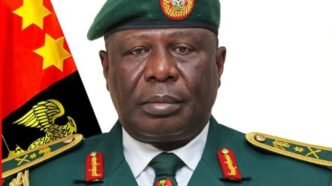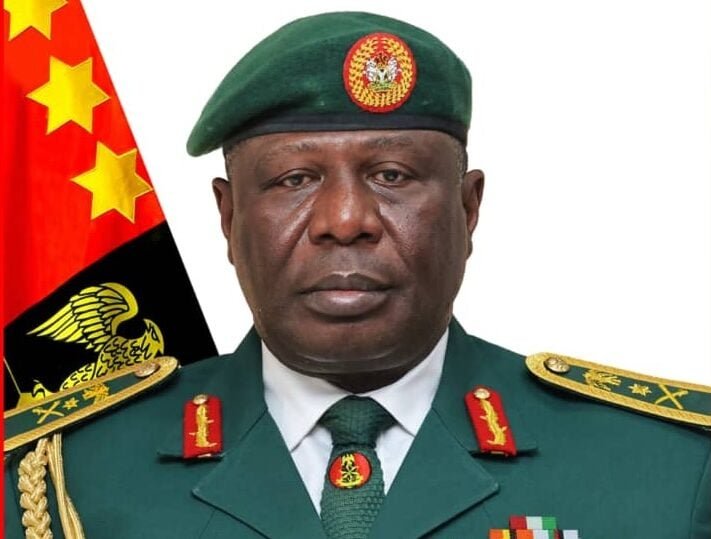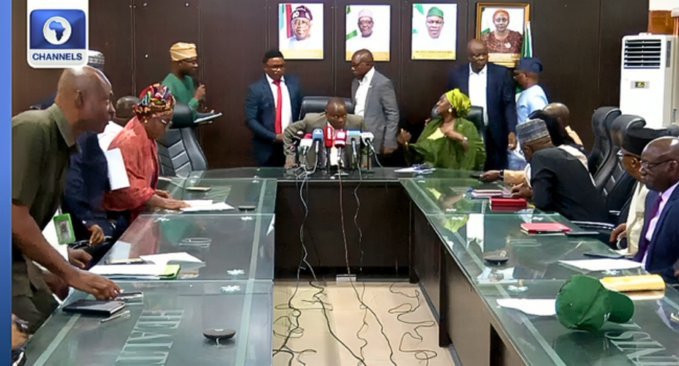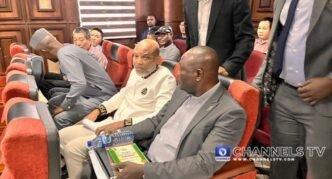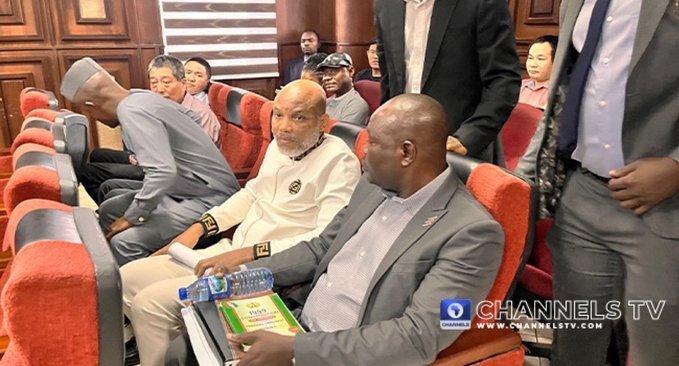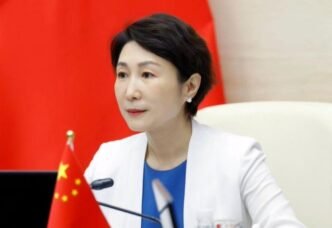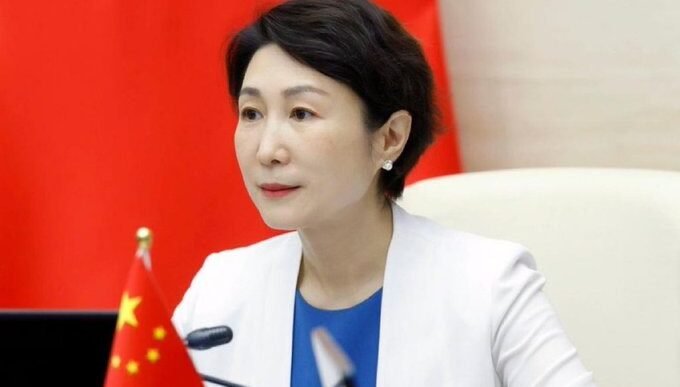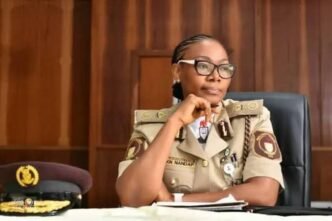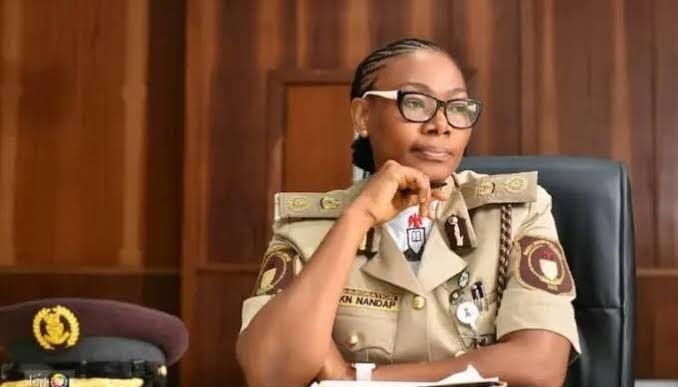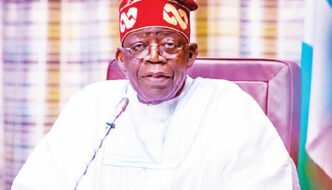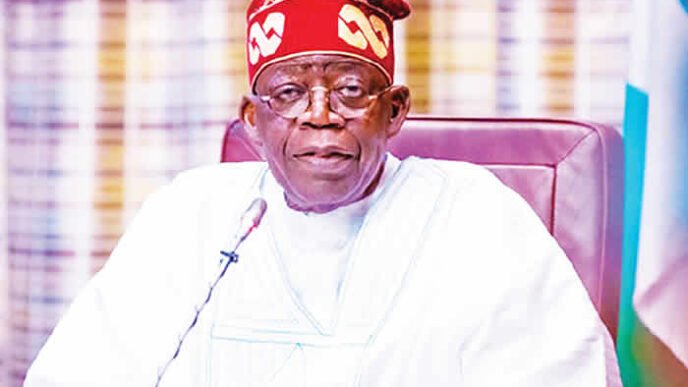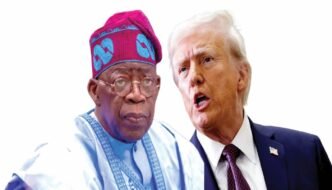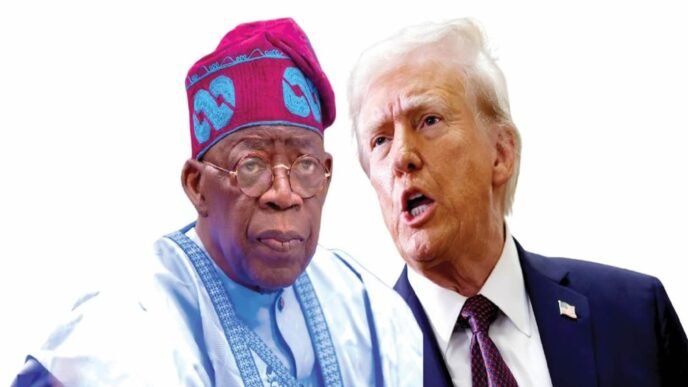The Chief of Defence Staff (CDS), General Olufemi Oluyede, has dismissed recent allegations of Christian persecution in Nigeria, insisting that the country’s primary security challenge remains terrorism and insurgency, not religion-based attacks.
Speaking to journalists on Monday in Abuja, General Oluyede responded to international concerns — particularly those raised by United States President Donald Trump, who had accused the Nigerian government of ignoring the killing of Christians by Islamist extremists.
Oluyede, however, firmly rejected the narrative, describing it as a misrepresentation of Nigeria’s complex security situation.
“There are no Christians being persecuted in Nigeria,” he said. “We are facing insecurity, especially terrorism, and it’s something that has been affecting Nigeria for quite some time now.”
The Defence Chief emphasized that the security threats confronting Nigeria are not religiously motivated, but are the result of long-standing extremist violence, criminal banditry, and economic desperation that have affected citizens across ethnic and religious lines.
Nigeria’s Security Context
Nigeria has grappled with multiple layers of insecurity over the past decade, including the Boko Haram insurgency, banditry in the North-West, communal conflicts, and separatist agitations in the South-East. These crises have led to tens of thousands of deaths and the displacement of millions.
General Oluyede noted that while terror groups such as Boko Haram and the Islamic State’s West Africa Province (ISWAP) have exploited religious rhetoric to justify violence, their underlying motives have been rooted in power, control, and criminal enterprise rather than genuine faith-based persecution.
“The terrorists have attacked churches, mosques, schools, and even markets. Their aim is to destabilize society and create fear, not to promote any religion,” the CDS explained.
He added that the Nigerian Armed Forces have maintained a neutral and professional stance in all operations, ensuring protection for all communities regardless of their faith or ethnicity.
Response to Trump’s Allegation
General Oluyede’s remarks come days after former U.S. President Donald Trump accused the Nigerian government of turning a blind eye to the alleged killing of Christians by Islamist groups. Trump’s comments, made during a campaign rally in Florida, reignited international debate on religious freedom in Africa’s most populous nation.
The claim prompted the Presidency and other top officials to issue clarifications, describing Trump’s statement as “misleading and unfounded.”
Earlier, Presidential Adviser on Policy Communication, Daniel Bwala, had confirmed that President Bola Tinubu would soon meet with Trump to discuss issues related to counterterrorism cooperation and religious tolerance.
Oluyede’s comments now mark the first official response from Nigeria’s military establishment, further reinforcing the government’s position that the insecurity ravaging parts of the country is not faith-based.
“We cannot afford to politicize terrorism. Every Nigerian—Christian, Muslim, or traditional believer—has been affected. The Armed Forces remain committed to protecting all citizens equally,” the Defence Chief said.
Ongoing Military Operations
General Oluyede outlined ongoing efforts by the Armed Forces of Nigeria (AFN) to combat insecurity through joint operations across different regions of the country.
He cited major campaigns such as:
- Operation Hadin Kai in the North-East, targeting Boko Haram and ISWAP elements;
- Operation Safe Haven in the North-Central, aimed at curbing communal clashes and banditry; and
- Operation Delta Safe in the Niger Delta, focused on protecting oil installations and reducing pipeline vandalism.
According to Oluyede, the military has achieved significant progress in recent months, including the clearance of several insurgent camps, rescue of hostages, and recovery of weapons.
“We’ve degraded terrorist capacity in the North-East and restored relative calm to communities that were once under siege. But we’re not complacent — the fight is ongoing,” he added.
He also acknowledged the cooperation between the military, intelligence agencies, and international partners, including the United States, France, and the European Union, in strengthening counterterrorism capabilities through training, intelligence sharing, and logistics support.
A Call for Balanced Reporting
Oluyede urged foreign media and international organizations to exercise caution and responsibility when reporting on Nigeria’s security situation, warning that unverified claims of religious persecution could inflame tensions and undermine ongoing peace efforts.
“When influential figures or organizations make such claims, they may not realize the impact it has on our national unity. We encourage everyone to verify facts before drawing conclusions,” he said.
He emphasized that while Nigeria welcomes constructive international engagement, false narratives about religious conflict could embolden extremist groups seeking to exploit divisions.
“Our diversity as a nation is our strength. The Armed Forces will continue to defend that unity against any threat,” the CDS added.
Experts React
Security analysts and religious leaders have reacted to General Oluyede’s remarks, calling for greater transparency in government communication about attacks affecting religious communities, but also agreeing that terrorism in Nigeria has targeted everyone indiscriminately.
Dr. Kabiru Adamu, a security consultant based in Abuja, told reporters that the religious framing of Nigeria’s insecurity problem often stems from external misinterpretation.
“When terrorists attack churches, it’s easy for international observers to label it persecution of Christians. But these same terrorists have also bombed mosques and killed imams who opposed them. The conflict is more political and ideological than religious,” Adamu explained.
Similarly, Rev. Dr. Samson Ayokunle, former President of the Christian Association of Nigeria (CAN), urged the government to engage more openly with global institutions to present accurate information about the security landscape.
“We must continue to tell our own story. While there have been attacks on Christians, there have also been countless Muslim victims. The solution is not to deny pain but to strengthen security and ensure justice for all,” Ayokunle said.
Humanitarian Impact and Civilian Protection
Despite military gains, Nigeria continues to face a massive humanitarian crisis, with millions displaced by violence in the North-East and North-West regions. The United Nations estimates that over 8 million people currently need urgent humanitarian assistance, including shelter, food, and healthcare.
Oluyede reaffirmed the military’s commitment to civilian protection, emphasizing that human rights training and compliance monitoring are now central to military operations.
“Our soldiers are under strict instruction to respect international humanitarian laws. We are here to protect, not to harm,” he said.
Conclusion
General Olufemi Oluyede’s remarks mark a decisive stance from Nigeria’s top military leadership amid growing international scrutiny over the country’s human rights and religious freedom record.
By asserting that terrorism, not religious persecution, remains Nigeria’s real security threat, the Defence Chief sought to refocus attention on the structural and ideological drivers of violence that continue to challenge Africa’s largest democracy.
As Nigeria works to rebuild affected communities and strengthen its counterterrorism strategy, observers say the government’s ability to balance security operations with human rights protection will remain key to restoring both domestic stability and international credibility.

